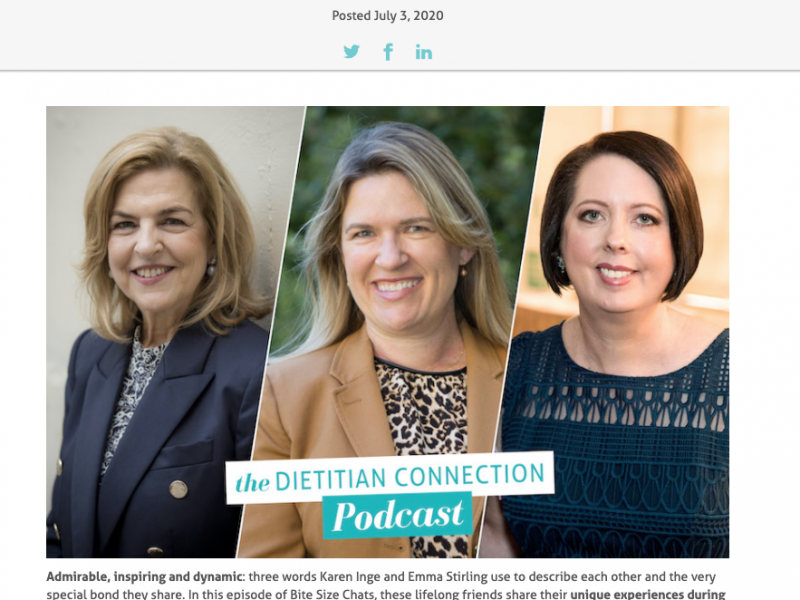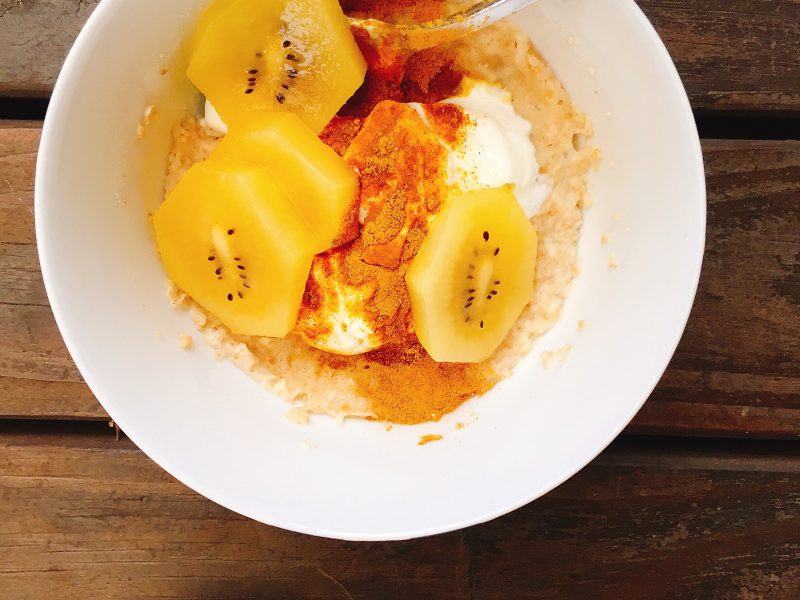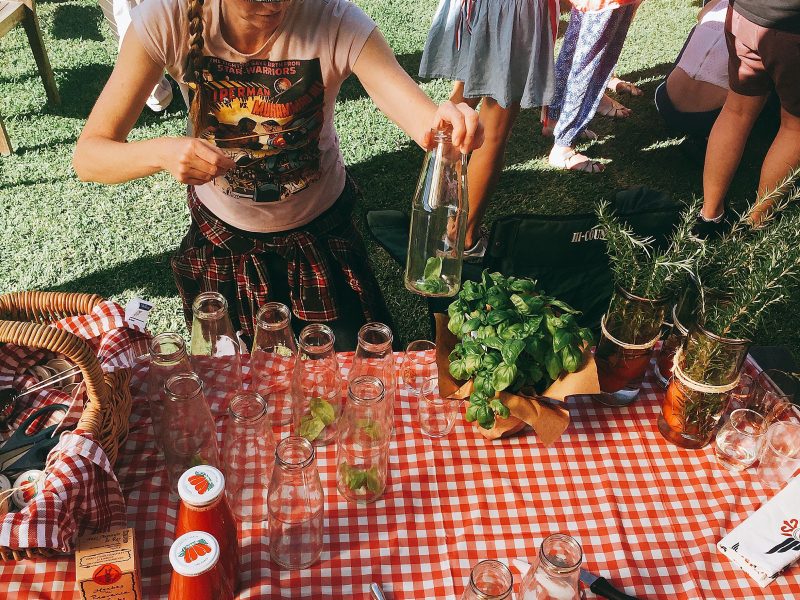 For a while now I’ve been tracking the rise of inner beauty food products with a very keen eye. Sure, I’m just as vain as the next woman and interested in anything that is going to naturally delay aging. But my interest isn’t personal and it runs more than skin deep. I feel passionately that if we are going to effectively change lifestyle behaviour, healthy eating messages need to be glammed up a bit, particularly for the youth market. Forget 2 fruit ‘n’ 5 veg or calcium for strong bones in later life. Tech savvy, young things want a promise of results right here, right now. And that’s where I think the beauty food niche comes in. Let’s explore:
For a while now I’ve been tracking the rise of inner beauty food products with a very keen eye. Sure, I’m just as vain as the next woman and interested in anything that is going to naturally delay aging. But my interest isn’t personal and it runs more than skin deep. I feel passionately that if we are going to effectively change lifestyle behaviour, healthy eating messages need to be glammed up a bit, particularly for the youth market. Forget 2 fruit ‘n’ 5 veg or calcium for strong bones in later life. Tech savvy, young things want a promise of results right here, right now. And that’s where I think the beauty food niche comes in. Let’s explore:
Growing more beautiful
Described by one trend forecaster as “the slow train coming” the idea of inner-beauty foods has gone mainstream only in recent years. At least in the Western world that is. In countries like Japan, dietary practices are deeply rooted in health, but also beauty. O n a m
n a m edia tour of Tokyo in 2008 hosted by Yakult, I was able to see first hand the steps women go to in order to obtain flawless, porcelain skin. With the biggest buzz coming from foods and supplements with collagen. Forget about those lip plumping injections. Many Japanese women mix collagen powder with water and drink on a daily basis or specifically choose drinks and dishes advertised with added collagen. And many of the female Yakult staff and customers I spoke with mentioned not the inner (gut) health, but the outer beauty benefits, of a daily dose of probiotics.
edia tour of Tokyo in 2008 hosted by Yakult, I was able to see first hand the steps women go to in order to obtain flawless, porcelain skin. With the biggest buzz coming from foods and supplements with collagen. Forget about those lip plumping injections. Many Japanese women mix collagen powder with water and drink on a daily basis or specifically choose drinks and dishes advertised with added collagen. And many of the female Yakult staff and customers I spoke with mentioned not the inner (gut) health, but the outer beauty benefits, of a daily dose of probiotics.
Under the microscope
There’s no denying that there is science support for the idea of beauty nutrients. The cosmetic industry has established their ‘science institutes” and long been in the lab with super fruit antioxidants and nutrients like coenzyme Q10. And take a look at folate. Nutrition scientists are studying folates role in cellular DNA replication and on the beauty front, many skin products now contain folate (or folic acid) with names like DNA-age Cell Renewal. But it’s highly likely that the greater success will be seen from ingesting these hero foods, than mixing them into a face cream. We just need a decade or so of clinical research to prove it.
Natural fit
We’v
 e seen some big foodies dabble in the area too in recent years, with mixed results. Like Danone Essensis beauty yogurt launched in Europe in 2007. And some small players in the Australian market like Dr Stuarts Skin Purify Tea. The other emerging area is the idea of positioning healthy, whole foods as beauty foods, through a mixture of clever marketing and nutrient function claims. Tassal Tasmanian Salmon is the recent arrival with full colour ads (as above) and promotion in leading Australian women’s lifestyle and fashion magazines. Made popular by the Perricone Promise, the link between the omega 3 content of the salmon and skin health is alluded to on the dedicated Tassal Pure Beauty Food website. There’s even a 3 day challenge and menu plan to try. And you know what? Even if the scientific evidence is a little lacking, it may just get a few of the girls to eat oily fish or consider balanced eating. And as it’s a fabulous product, I’m all for it. Shame we can’t make broccoli sound so good.
e seen some big foodies dabble in the area too in recent years, with mixed results. Like Danone Essensis beauty yogurt launched in Europe in 2007. And some small players in the Australian market like Dr Stuarts Skin Purify Tea. The other emerging area is the idea of positioning healthy, whole foods as beauty foods, through a mixture of clever marketing and nutrient function claims. Tassal Tasmanian Salmon is the recent arrival with full colour ads (as above) and promotion in leading Australian women’s lifestyle and fashion magazines. Made popular by the Perricone Promise, the link between the omega 3 content of the salmon and skin health is alluded to on the dedicated Tassal Pure Beauty Food website. There’s even a 3 day challenge and menu plan to try. And you know what? Even if the scientific evidence is a little lacking, it may just get a few of the girls to eat oily fish or consider balanced eating. And as it’s a fabulous product, I’m all for it. Shame we can’t make broccoli sound so good.
Future gazing
 In our sun-burnt country we still love that glow of a golden tan. But as I slap on the sunscreen I carefully coach my daughter that she should aspire to be like our gorgeous Aussie Cate Blanchett. Not a freckle or sun spot in sight. And with global warming maybe one day, we will all aspire to porcelain skin too. And so I’m interested in a recent British study that reported consuming lycopene-rich tomato pastes may protect against sunburn and sun-induced skin ageing. The potential skin saving secret? Lycopene’s ability to quench the harmful free radicals formed when skin is exposed to UV rays. So sorry boys but the lycopene for prostate cancer protection message may be old hat. Get ready for a feminine packaged tomato paste for optimal beauty.
In our sun-burnt country we still love that glow of a golden tan. But as I slap on the sunscreen I carefully coach my daughter that she should aspire to be like our gorgeous Aussie Cate Blanchett. Not a freckle or sun spot in sight. And with global warming maybe one day, we will all aspire to porcelain skin too. And so I’m interested in a recent British study that reported consuming lycopene-rich tomato pastes may protect against sunburn and sun-induced skin ageing. The potential skin saving secret? Lycopene’s ability to quench the harmful free radicals formed when skin is exposed to UV rays. So sorry boys but the lycopene for prostate cancer protection message may be old hat. Get ready for a feminine packaged tomato paste for optimal beauty.
There are also big players in the beauty industry showing signs of high corporate, social responsibility in the health arena. Like o ur home grown Napoleon Perdis and his brother Emanuel and their support for raising awareness of Ovarian Cancer Australia. Hearing Emanuel speak so articulately and passionately last year on their company’s philosophy of inner health (as well as outer beauty) for all women, was very inspiring indeed.
ur home grown Napoleon Perdis and his brother Emanuel and their support for raising awareness of Ovarian Cancer Australia. Hearing Emanuel speak so articulately and passionately last year on their company’s philosophy of inner health (as well as outer beauty) for all women, was very inspiring indeed.
So you see the lines of health, food, nutrition and beauty really are merging more than ever before. And even though beauty foods may sound a little superficial at first, there could be huge opportunity for championing behaviour change. Dietitians and policy makers just need to learn to take a closer look, under the surface. Agree?


